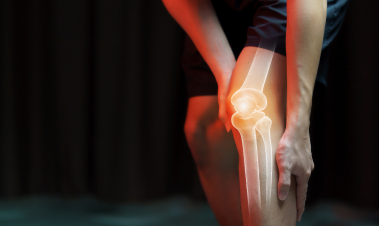Joint replacement surgeries refer to procedures by which the surgeon removes parts of a diseased or damaged joint and replaces it with prosthetics made of metal, ceramic, or plastic. This surgery aims to allow the patient to regain normal movement in the joint affected by disease or damage. If you are affected by some condition that causes severe joint pain and movement restrictions, you need to immediately visit the Top Joint Replacement Hospital in Delhi. The doctors will assess your condition to see whether you can qualify for a joint replacement.
Who needs joint replacement?
Most joint pains happen because of damage suffered to the cartilage present at the ends of the bones. Such damage happens due to conditions like arthritis, fractures, and other reasons. If a person does not find any improvement in symptoms with medication or physiotherapy, then the doctor may recommend a total joint replacement. If you experience disability or persistent severe pain, it is wise to visit the Best Joint Replacement Centre in Delhi for a proper assessment of your condition.
Possible complications related to joint replacement
Like in the case of any surgery, there is the possibility of complications occurring during or after a joint replacement. Most of these complications are treatable and resolve after some time. To know in detail about these complications, contact the Centre for Joint Replacement in Delhi and be better prepared for the surgery.
Let us look at some of the usual complications:
1. Complications linked to anaesthesia: Surgeons mostly use general anaesthesia during a joint replacement, which is usually safe, but sometimes, there may be side effects like dizziness, vomiting, aches, and drowsiness. In rare cases, there may be breathing difficulty or allergic reactions,
2. Blood clots: A blood clot like deep vein thrombosis may occur during or after joint replacement surgery. Rarely, such a clot may move through the blood, creating a blockage in the lungs to cause a pulmonary embolism.
3. Infection: Though rare, infections can occur after joint replacement and are severe, needing urgent treatment. It usually happens when bacteria enter the joint during or after the surgery. The best way to prevent such infections is to take antibiotics as prescribed by the doctor. You should always keep the wound area clean. Contact the doctor immediately in case of soreness, redness, or swelling that keeps worsening.
4. Allergic reactions: Sometimes, a patient may experience a reaction to a metal used in the prosthetic joint. It is advisable always to inform the doctor of your allergy before surgery.
5. Constant pain: A little pain after surgery is normal. However, if it does not improve after some time even with pain medication, you will need to see the doctor.
6. Wound-related complications:Sometimes, a wound may take a long time to heal, or there may be constant bleeding. In some cases, the skin at the wound site may not heal properly.
7. Blood transfusion complications: Very rarely, a patient undergoing joint transplant may need a blood transfusion. Most blood banks test blood for possible infections, but in rare cases, infection is possible.
8. Issues with the implant: There may be cases when the implant has a problem. The implant may become unstable, or it could dislocate or develop a fracture.
It is better always to receive full information about possible complications before undergoing a joint replacement procedure. To maximize the chances of a positive outcome, visit Saroj Super SpecialityHospital, the Best Joint Replacement Hospital in Delhi and receive the best possible healthcare treatment. The doctors at the hospital have a high success rate achieved by using the most advanced medical equipment and techniques.



